Our Story
Backed by research
Over 40% of Canadian women experience partner violence at some point in their lives. It can be hard for women to figure out what to do about the abuse or the negative impacts it has on their lives.
Even when different types of services are available, women can face barriers to getting help.
For over 20 years, our research team has been working to support Canadian women experiencing violence in improving their health, safety, and well-being. The evidence we’ve developed with and for women was used to design the iHEAL app, and takes into account their different priorities, resources and needs.
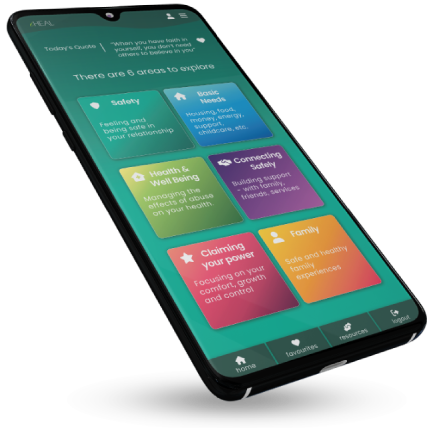
There is no "right" path to becoming safer or healthier, but knowledge is power! Web-based and mobile apps that have been carefully developed and tested, have been shown to benefit women in important ways and provide a helpful resource to those who support them.
For example, our research has shown that Canadian women who used previous online tools we developed reported:
- better mental health (fewer symptoms of depression and PTSD)
- increased confidence in safety planning
- stronger sense of control over their lives
- less coercion from their abusive partners
The iHEAL app is the newest in a series of online resources developed by our team. Like previous tools, it was developed using the best available evidence, including women’s needs and preferences, and knowledge from experts who work with women to support their health and well-being.
It’s an accessible "made in Canada" resource that is easy and safe to use, and that provides information appropriate for women across Canada in both English and French.
Our Team
The iHEAL app was developed through a longstanding collaboration between researchers at Western University, University of British Columbia, and University of New Brunswick.
Team Leads
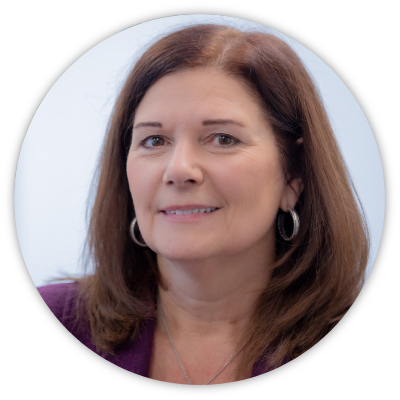
Dr. Marilyn Ford-Gilboe, RN, PhD, FAAN, FCAHS, FCAN (Lead) is a Distinguished University Professor and Women’s Health Research Chair in Rural Health, Arthur Labatt Family School of Nursing, Western University. With a background in public health nursing, for the past 25 years, her research and community work have focused on improving the health and quality of life of people affected by violence and inequities by improving services and policies. Most of her research focuses on women’s health, violence, health equity and place, particularly testing online and F2F safety and health interventions for women who have experienced partner violence.
Email: mfordg@uwo.ca
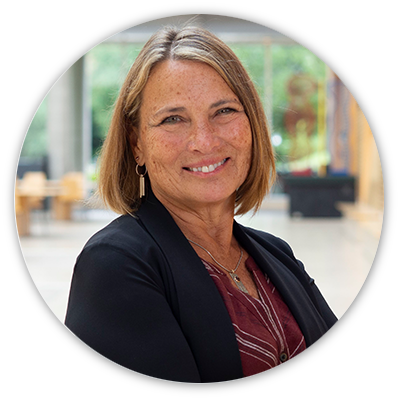
Dr. Colleen Varcoe, RN, PhD, FCAHS, FCAN (Co-lead) is a Professor Emeritus in the University of British Columbia School of Nursing. Her work aims to decrease inequity and violence including interpersonal and structural forms of violence such as racism and poverty. Her completed research includes studies of risks and health effects of violence and how to promote health for women who experience violence, especially Indigenous women. She has studied how to promote equity-oriented healthcare (cultural safety, harm reduction, and trauma- and violence-informed care) at the organizational level and worked with various Indigenous communities, organizations and issues, including in health care and criminal justice contexts.
Email: colleen.varcoe@nursing.ubc.ca
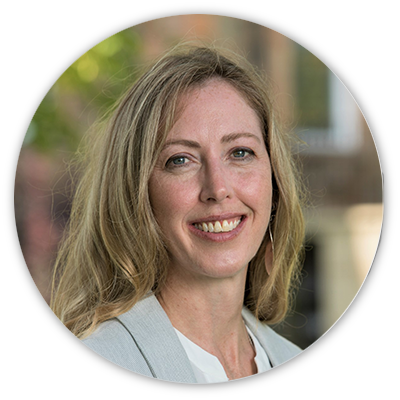
Dr. Kelly Scott-Storey, RN, PhD (Co-lead) is a health researcher and Professor in the Faculty of Nursing at the University of New Brunswick, Director of Community Research, Scholarship and Teaching at the Fredericton Downtown Community Health Centre and a Research Fellow with the Muriel McQueen Fergusson Center for Family Violence Research. Her program of research is broadly in the intersection of violence, gender and health and focuses on health interventions and measurement of violence/scale development and community action.
Email: kscottst@unb.ca
Collaborators and Trainees
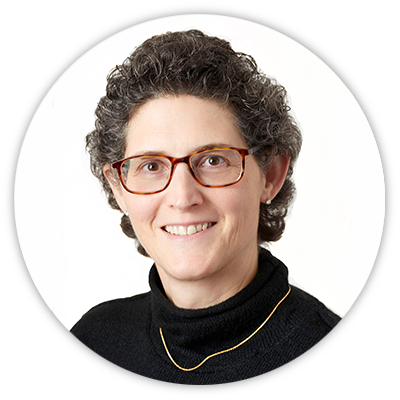
Nadine Wathen, PhD, FCAHS, is Professor and Canada Research Chair in Mobilizing Knowledge on Gender-Based Violence in the Arthur Labatt Family School of Nursing, at Western University. She has supported knowledge mobilization efforts for the iHEAL app and related projects.

Karen Campbell, RN, PhD, is an Assistant Professor in the School of Nursing at York University, Toronto, Ontario and formerly a Postdoctoral Fellow in the School of Nursing at Western University.

Christine Garinger, RN, CCHN(C), MHIS, is a PhD Candidate in the Arthur Labatt Family School of Nursing at Western University. She is an iHEAL Practice Consultant and a member of the app development team. She has an interest in the impacts of violence on health and improving the quality of healthcare for all.
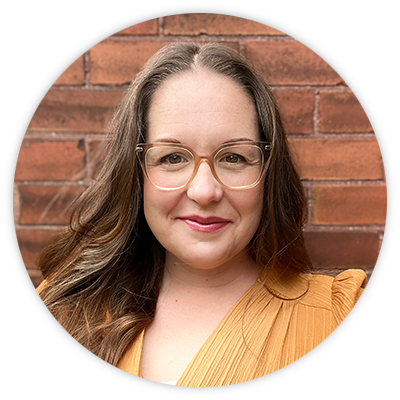
Logan Kennedy, RN, MN is a PhD Candidate in the Arthur Labatt Family School of Nursing, Western University, and a member of the app development team. She is also Co-Director of the Women and HIV Research Program, Women's College Hospital. Her research focuses the sexual and reproductive health and rights of women, specifically younger women's sexual health needs and priorities.

Tara Mantler, PhD, is an Assistant Professor in the School of Health Studies, at Western University. Her program of research focuses on gender-based violence, rurality, and women’s health with the aim of understanding and addressing inequities. She is supporting knowledge mobilization and scale up of the iHEAL app.

Christina Safar, MSc, is a Research Associate for iHEAL. Her research interests includes gender-based violence among older women. She provides support with updating the app and knowledge mobilization activities.
Acknowledgements
Sincere thanks to the many research staff, students, service providers, colleagues and violence survivors who have given generously of their time and expertise to help develop and refine the iHEAL app.
We are grateful for funding from the Public Health Agency of Canada (PHAC) to support the development of the iHEAL app.
Previous app development work and research used in the creation of the iHEAL app was funded by the Public Health Agency of Canada (PHAC), Women and Gender Equality (WAGE) Canada, and the Canadian Institutes of Health Research (CIHR).